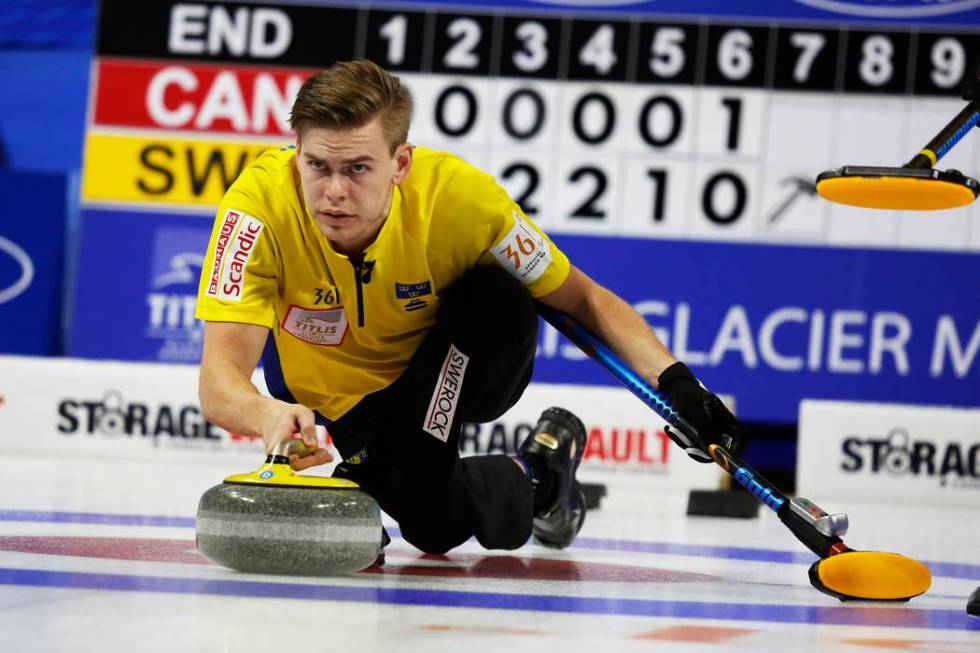Why Las Vegas won’t be hosting Olympic curling in 2030

Las Vegas has quietly become a hotbed for curling.
That’s why it stung winter sports enthusiasts and longtime supporters of the Olympic movement in Nevada last week when the Reno Tahoe Winter Games Coalition announced it was reluctantly pulling out of the competition to host the 2030 Winter Games.
The Reno-Tahoe region was one of three locations the U.S. Olympic Committee invited to make proposals to host the 2030 Games. Denver and Salt Lake City remain in the running.
And miles away in the desert, Las Vegas was a virtual shoe-in to host curling events if Reno-Tahoe was to secure the bid.
Brian Krolicki has boosted hosting the Games as a tourism generation opportunity for Nevada since the days he chaired the Nevada Commission on Tourism as lieutenant governor. But he said last week that the rules of Olympic marketing could have been a losing proposition.
“We have maintained from the start that a Reno-Tahoe bid would have to make sense economically, environmentally and socially,” said Krolicki. “Given the parameters and conditions presented, we cannot make the numbers pass muster. To continue, at this point, would be untenable and unwise.”
There aren’t any projections to suggest how many visitors would have come to Las Vegas to watch Olympic curling, but history suggests that the numbers would move the needle. International fans at the Winter Olympics in Salt Lake City in 2002 and the Summer Games in Los Angeles in 1984 found their way to Las Vegas because it was close enough to make it worth the trip.
Krolicki, who chaired the coalition board, and CEO Jon Killoran explained that guidelines established by the U.S. Olympic Committee to market the event would make it financially unfeasible for Reno-Tahoe to host. Under the USOC’s guidelines, Los Angeles, the scheduled host for the 2028 Summer Games, would have exclusive marketing rights from early next year through those Games’ completion.
That means that Reno-Tahoe, if awarded the Winter Games, would have had less than two years to market events and secure sponsorships.
Budget models for the Reno-Tahoe bid have been based on a traditional seven-year marketing and sponsorship cycle, and the organization did not see an alternative business model to make a significantly shorter timespan work.
And that’s a shame, since Las Vegas has broken out as the improbable curling oasis of the United States. For several years, The Orleans has played host to the Continental Cup, a global curling competition pitting the best curlers of North America against the best from the rest of the world. A number of Olympic curlers have participated in the Las Vegas event over the years.
“It’s very bittersweet,” said 1960 Olympic swimmer Anne Cribbs, who has worked to bring the Games to the San Francisco Bay Area and is coordinating 120 volunteers from Canada and the United States for January’s Continental Cup.
“Nevada’s a great sports area and getting even better with all the work that’s going on in Las Vegas,” Cribbs said. “But I think Jon Killoran and former Lt. Gov. Brian Krolicki made the right decision, even though it’s disappointing to fans.”
The unexpected spinoff of the Continental Cup was the explosion in the number of Canadian visitors for the event. The Canadian presence at Cup events and the curling after-parties has produced near-sellout crowds.
Canada is Las Vegas’ biggest international tourism market. In 2017, about 1.8 million passengers flew three Canadian airlines from several destinations north of the border to McCarran International Airport. That doesn’t count travelers connecting on other airlines to Las Vegas from Canada or a number of Canadian passengers who fly to Las Vegas on Allegiant Air from Bellingham, Washington, just south of the British Columbia border.
While putting curling in Las Vegas would be a no-brainer, the prospect of hosting opening and closing ceremonies would also have been an interesting conversation, considering that Las Vegas would have the two largest-capacity stadiums in the state, one indoors and one outdoors. It’s always been assumed that Olympic ceremonies would be staged at 30,000-seat Mackay Stadium on the University of Nevada, Reno campus.
But who’s to say the new Las Vegas stadium (65,000 seats) or Las Vegas Motor Speedway (80,000 seats) wouldn’t be better venues?
Contact Richard N. Velotta at rvelotta@reviewjournal.com or 702-477-3893. Follow @RickVelotta on Twitter.